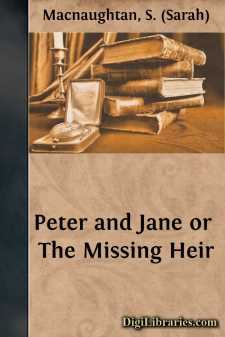Categories
- Antiques & Collectibles 13
- Architecture 36
- Art 48
- Bibles 22
- Biography & Autobiography 813
- Body, Mind & Spirit 141
- Business & Economics 28
- Children's Books 12
- Children's Fiction 9
- Computers 4
- Cooking 94
- Crafts & Hobbies 4
- Drama 346
- Education 46
- Family & Relationships 57
- Fiction 11826
- Games 19
- Gardening 17
- Health & Fitness 34
- History 1377
- House & Home 1
- Humor 147
- Juvenile Fiction 1873
- Juvenile Nonfiction 202
- Language Arts & Disciplines 88
- Law 16
- Literary Collections 686
- Literary Criticism 179
- Mathematics 13
- Medical 41
- Music 40
- Nature 179
- Non-Classifiable 1768
- Performing Arts 7
- Periodicals 1453
- Philosophy 64
- Photography 2
- Poetry 896
- Political Science 203
- Psychology 42
- Reference 154
- Religion 513
- Science 126
- Self-Help 83
- Social Science 81
- Sports & Recreation 34
- Study Aids 3
- Technology & Engineering 59
- Transportation 23
- Travel 463
- True Crime 29
S. (Sarah) Macnaughtan
Sarah Macnaughtan (1858–1916) was a Scottish writer and humanitarian known for her novels and travel writing. Her works often reflected her strong religious beliefs and passion for social justice. Some of her notable books include "The Fortune of Christina McNab" and "The Expensive Miss Du Cane," which depict sharp observations of society and human nature. During World War I, she volunteered as a nurse, and her war diaries were later published as "A Woman’s Diary of the War," showcasing her firsthand experiences and dedication to humanitarian work.
Author's Books:
Sort by:
CHAPTER I ANTWERP On September 20th, 1914, I left London for Antwerp. At the station I found I had forgotten my passport and Mary had to tear back for it. Great perturbation, but kept this dark from the rest of the staff, for they are all rather serious and I am head of the orderlies. We got under way at 4 a.m. next morning. All instantly began to be sick. I think I was the worst and alarmed everybody...
more...
CHAPTER I Mrs. Ogilvie, red-haired according to the exact shade then in fashion, and dressed by Paquin, sat in her drawing-room reading the Court Journal. She was a woman who thought on the lines of Aristotle, despised most other women except Charlotte Corday, Judith, Joan of Arc, and a few more, and she dyed her hair and read the Court Journal. People who did not know her sometimes alluded to her as...
more...



